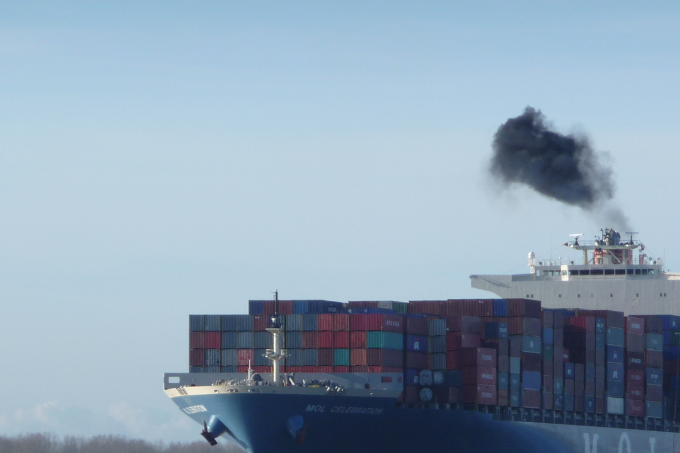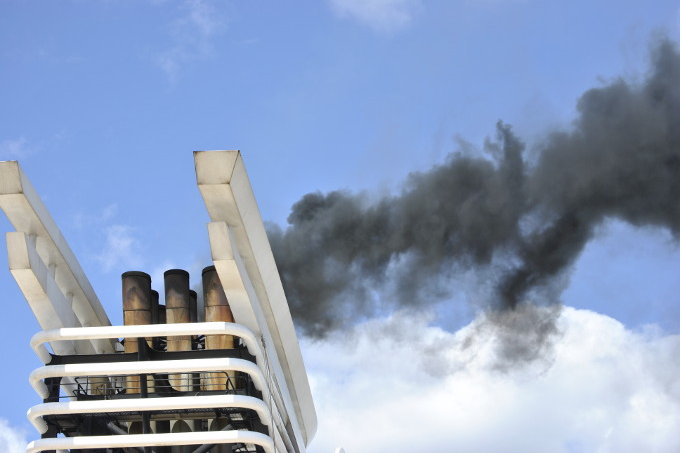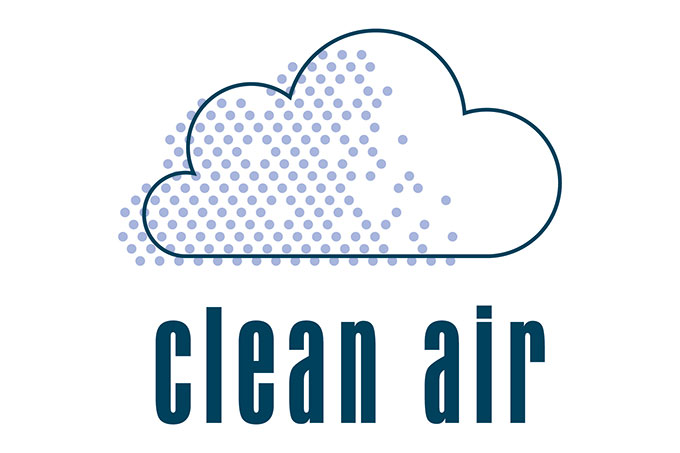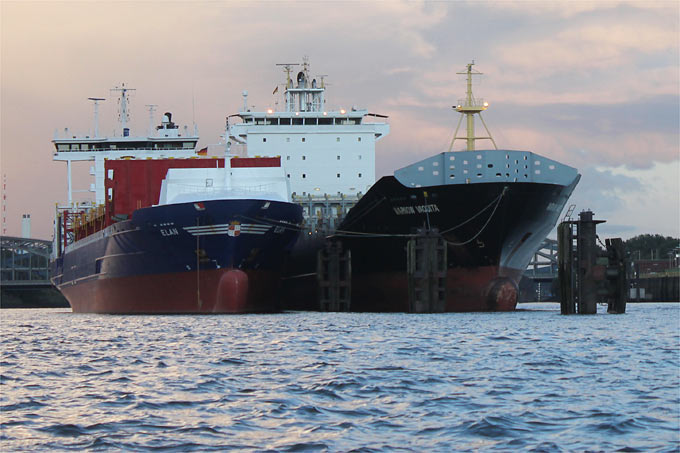Ammonia as Marine Fuel
NABU-study shows high potential for the climate, but only if risks are resolved

Containership - Foto: NABU/Andrea Henning-Andresen
To investigate the extent to which ammonia can play a role as the green fuel of the future, NABU commissioned the German Öko-Institut with a study. The results seem promising: Ammonia as fuel has a high potential for climate protection – under certain conditions.
As a marine fuel ammonia can only fully develop its climate protection potential ...
- if the harmful emissions of nitrous oxide that arise in production, transport and combustion are almost completely eliminated. To ensure this, all kinds of greenhouse gases must be included in national and international regulations on greenhouse gas reduction and pricing.
- if there are strict safety regulations for the use of ammonia as a marine fuel. An accident would have serious consequences for the marine environment, even if short- as well as long-term consequences would be less disastrous than those of a fossil heavy fuel oil or diesel accident.
- if air pollution is tackled and a global nitrogen oxide control area (NECA) is set up to pave the way for completely emission-free shipping. Such a regulation can be initiated immediately at the International Maritime Organization, since this is an approved measure that is already taking effect in the North and Baltic Sea and the North American waters.
The study also finds that even if ammonia is not widely used as a fuel in shipping, investments in ammonia infrastructure will be not a stranded asset, as ammonia will play an important role in the decarbonization of other sectors in the hydrogen economy. The timely financial and legal promotion of green ammonia production under the necessary environmental and safety requirements would therefore be a no-regret decision for climate protection in contrast to today’s decisions for LNG use and infrastructure.
Further research urgently required
The study does not look into the efficiency of the production of the fuels when comparing their climate impacts. A deeper look into the energy demand during the whole lifecyle of all fuels is necessary for a holistic approach. For example, the production of hydrogen consumes less energy than the production of ammonia or methanol. But liquid hydrogen has to be stored at -252°C and under high pressure, which requires a lot of energy. To produce methanol as completely renewable fuel, direct air capture of CO2 is needed – also a very energy demanding technology. Furthermore, well-founded knowledge on the level of nitrous oxide emissions is not yet available. This makes it difficult to decide on regulations like setting a limit value. Therefore the present study can only be a first contribution to a discussion about the effect of ammonia as a marine fuel; further scientific investigations are urgently required.
Shipping is responsible for around three percent of global greenhouse gases. The International Maritime Organization adopted its greenhouse gas reduction strategy for the shipping sector in 2018. This envisages halving CO2 emissions from shipping by 2050 compared to 2008. In order to be compliant with the 1.5 degree target, international shipping should actually strive for the goal of complete decarbonisation by 2050. The industry is currently looking for the fuel of the future; fuels such as ammonia and hydrogen are listed as promising candidates, because they burn completely CO2-free. Ammonia is likely to be the cheapest to produce compared to other renewable fuels and it is already being shipped worldwide in large quantities.
DOWNLOADS
MORE INFORMATION
Liquefied gas is meant to reduce air pollutant emissions from shipping drastically. LNG promises an immense greening potential, but there are still questions regarding the overall ecological performance. more →
In ports the air is often more contaminated than elsewhere. Ships, shunting locomotives, or heavy truck traffic pollute the air with emissions from fuels that are a thousand times dirtier than road fuels. more →
One year after the introduction of stricter sulfur limits for marine fuel, the air pollution in the North Sea and Baltic Sea has declined considerably. This is one result of the study released by German NGO NABU (German Nature and Biodiversity Conservation Union). more →



